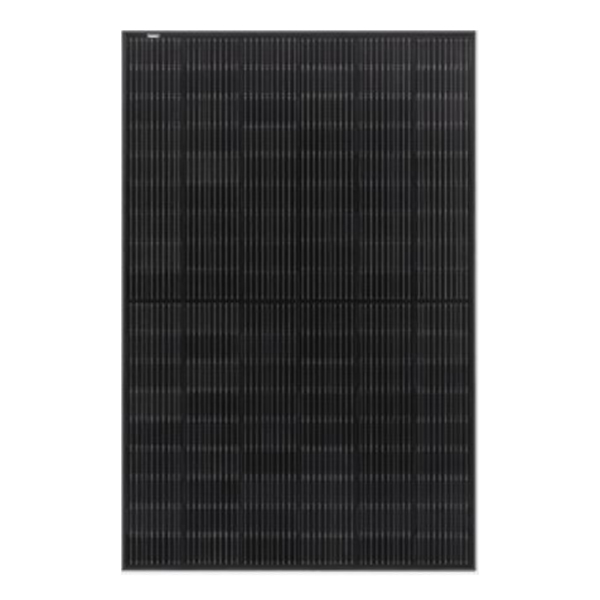Most homes already have a smart meter that digitally communicates with the electric grid. If you're looking to get rooftop solar panels, a smart meter is an essential piece of equipment. Here's why.
A smart meter helps solar panels interact with the grid. Adding Solar Panels To House

Electric meters are silent workhorses of the energy grid, the last bit of public infrastructure electricity passes through before entering our homes.
Like most people, if you've looked at your energy bill, you've likely noticed how much you owe and how much energy you've used. That's where your smart meter comes in.
Electric meters measure the amount of electricity you consume. Over the last decade or so, most of them have been switched over to newer, smarter versions. So-called smart meters come with a few other capabilities, too, like remotely communicating with your utility or measuring the energy you send back to the grid. As of 2022, nearly 90% of residential electric meters are some type of smart meter.
The march of smart electric meters is sure to continue. Whether you already have one or you're in the minority of those still uninitiated, here's what you need to know.
Can solar panels save you money?
Interested in understanding the impact solar can have on your home? Enter some basic information below, and we’ll instantly provide a free estimate of your energy savings.
An electricity meter measures and records energy consumption. A traditional meter requires a person to physically collect the data so that utility companies know how much energy you've used and how to bill you. It's a manual process susceptible to human error.
A smart meter also records and measures energy consumption but uses digital technology to send energy consumption information to utility companies at regular intervals, eliminating the need for a human meter reader.
"A smart meter is something that's installed in lieu of a traditional meter, and the difference is that it's digital," said Lily Valdez, CEO of Sunlily Energy, a solar installation company headquartered in California.
There's some variation in smart meter technology. Aside from remotely reporting energy use, some smart meters can track both the energy you draw from the grid and the energy you send back to it.
"It's not analog, and it's bidirectional -- it can measure kilowatts being exported to the grid versus only consumption," Valdez said.
Smart meters might save you money. If they allow you insight into your energy consumption habits, they can reveal practical ways to reduce energy usage.
Smart meters also facilitate net metering, an important system for people with solar panels, by measuring both the electricity drawn from the grid and the surplus electricity fed back into the grid. Depending on your local net metering regulations, you'll receive credits on your bill for the electricity you send back.
Smart meters calculate net energy usage by subtracting the surplus electricity generated from the total energy consumed.
An electric meter is a key component of a functioning solar system.
Take the example of a house with solar panels sitting empty for a few days while the owners are away on vacation, Valdez said. The electricity from the solar panels would flow back to the grid through a smart meter, which would track the amount of generated electricity that would need to be credited to your bill. Depending on your arrangement, you might get credited at a lower price than you pay.
Smart meters aren't only useful for solar net metering. Sending electricity back to the grid from a stand alone battery that's part of a virtual power plant or used for rate arbitrage would also require a two-way smart meter. Two-way meters are already common. They make up nearly 75% of all residential electric meters in the United States.
Net metering has evolved since its conception. Less and less often is energy you export to the grid worth the same as what you buy from it. In these cases, the meter isn't literally (or figuratively) spinning one way and then the other. It's instead tracking how much you buy and how much you send back and you're compensated at a lower rate for what you export than what you buy.
One advantage of a smart meter is that it allows utility companies to know what's happening in real time, including alerting them of power outages. This allows utility companies to dispatch crews and know when power is restored without needing communication from a human. They can help speed up the restoration process.
In addition to eliminating the need for meter reading visits, utilities can turn service on and off remotely via smart meters.
A smart meter doesn't directly cost anything extra to consumers since they're being installed by utility companies as a matter of course.
If a smart meter is installed where you reside, there's no need to panic. Ultimately, you shouldn't experience any disruption or change in your service.
"The pros are obviously that you're able to go solar with it (and) that it's more accurate than an analog old version," said Valdez. Unless you count its role in the creation of your energy bill, there's little downside to an upgraded smart meter.
A smart meter is an electric meter that relays information digitally and in real time. Many smart meters are bidirectional and can measure electricity flowing from and to the grid.
There are no widespread or well-documented dangers or significant drawbacks to the rollout of smart meters. Like any electrical equipment, poor installation or faulty equipment can pose isolated dangers.
Best Solar Products and Companies
Living Off the Grid Series
We thoroughly evaluate each company and product we review and ensure our stories meet our high editorial standards. Read how we test products and services.

Solar Energy System Instantly estimate your solar cost and savings. Pick a provider later.